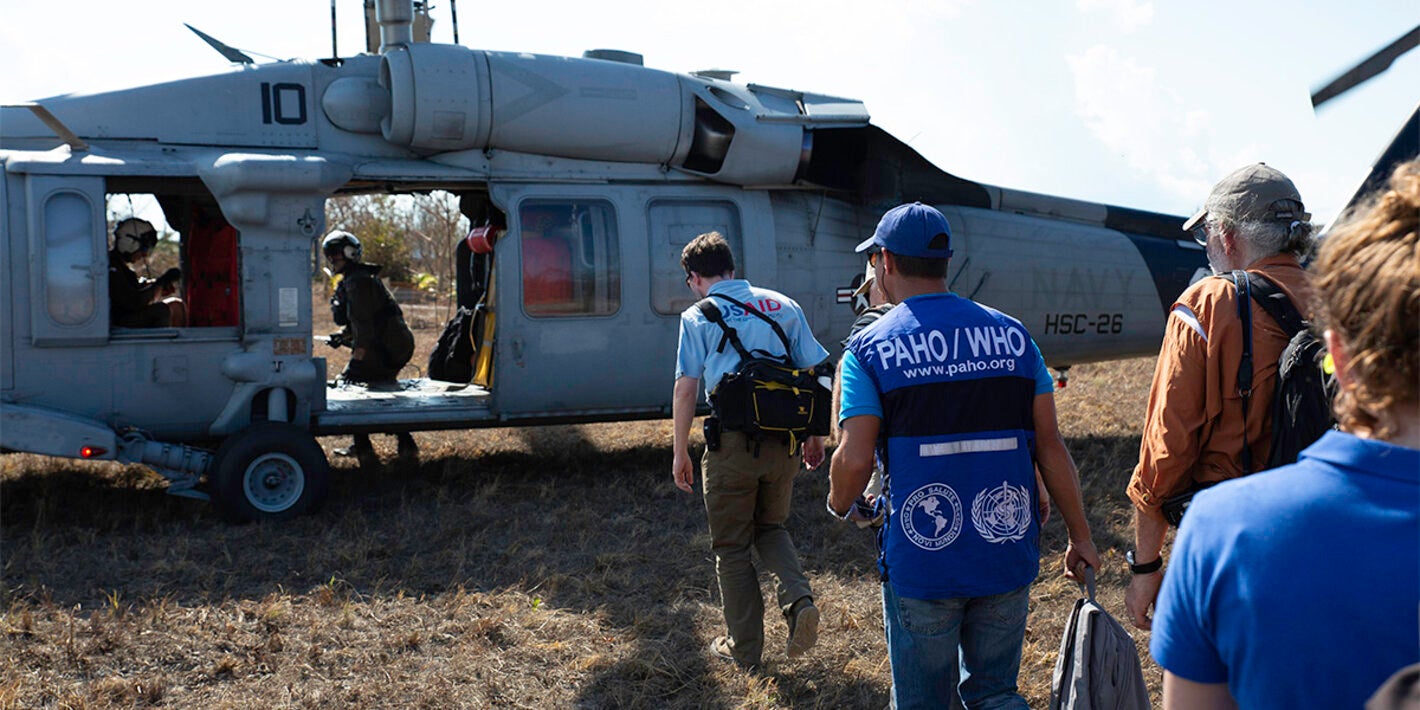
Washington, Sept. 20, 2016 (PAHO/WHO)- Pan American Health Organization Director Carissa Etienne has announced that PAHO is creating a new PAHO Health Emergencies Department (PHE) that aligns with the new World Health Organization (WHO) Health Emergencies program.
The program brings together the Department of Emergency Preparedness and Disaster Relief, the Unit of International Health Regulations/Epidemic Alert and Response, and Water Borne Diseases under a consolidated management structure that reports to the Director of PAHO.
The PAHO Health Emergencies Program covers five areas, including Infectious Hazard Management, Country Health Emergency Preparedness and International Health Regulations, Health Emergency Information and Risk Assessment, Emergency Operations, and Disaster Risk Reduction and Special Programs.
The new department integrates work areas that PAHO has had in place for many years, but in a different arrangement in order to functionally align its work in emergencies with WHO's new Health Emergencies Program (WHE), while maintaining priority areas of work for the Region of the Americas not included in WHE.
PAHO's priorities include prevention, risk reduction, preparedness, surveillance, response, and early recovery as countries prepare for, respond to, or recover from emergencies. The new program will deal with high risk diseases of pandemic and epidemic potential, such as viral hemorrhagic fevers, influenza, coronavirus, arthropod-borne viral diseases, and bacterial diseases.
PAHO will continue to support countries throughout the Americas in preparing for and responding to disease outbreaks, natural or human-made disasters or conflicts, and other emergencies.
When the World Health Assembly discussed the new program in May, delegates of the countries of the Americas noted that PAHO's Emergency Preparedness and Disaster Relief Program, in place since 1976, has been "a proven, effective mechanism capable of responding to emergencies and disasters in the Region of the Americas, and its work within the WHO framework." Taking this into account, the countries of the region stressed that their support for the new WHO program is provided "in the understanding that PAHO's Program will continue to operate with a view to serving fully the needs of the Member States of the region, and will work and coordinate with the WHO Program as appropriate."
PAHO's Department of Communicable Diseases and Health Analysis (CHA), in addition to its work on neglected tropical diseases, public health entomology and vector control, HIV, TB, dengue, malaria, hepatitis, sexually transmitted diseases, and health information and analysis, also remains responsible for work on Antimicrobial Resistance, food safety, and regional water and sanitation.



